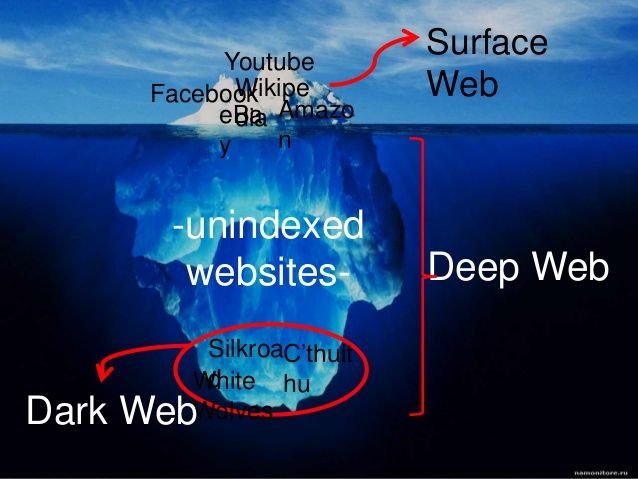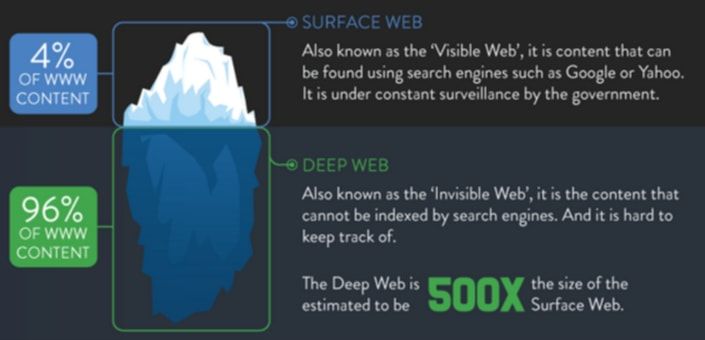
DARK WEB:
When you browse the Internet, check your email or watch a vlog on YouTube, you are accessing the surface web.
Also called the ‘visible net,’ this is content that anyone can access, particularly aided by search engines such as Google.
Currently, four-dimensional of the planet wide net is taken into account surface net ( the equivalent of eight billion pages).
The remaining ninety six of the worldwide net is that the deep net (or invisible web).
The deep net is any content that can't be indexed or crawled by search engines.
It is estimated that the deep web is 500 times the size of the surface web.
The awkward family photos situated on your Dropbox and therefore the season 2 video files of House of Cards on Netflix would be hosted on the deep net, as they
cannot be indexed by search engines.
The fact that the deep net is totally anonymous raises the question – is it legal to access the deep net, through anonymous browsers like TOR?
Accessing the Deep Web:

To access the Deep Net, an avid browser is needed.
The Onion Router (also referred to as Tor) is that the most typically used browser, followed by I2P and Freenet.
As the information on the deep web cannot be accessed directly, files are often hosted on a number of different servers through peer-to-peer networking. Consequently, this method of accessing data is often encrypted and makes it difficult to track where users are located and what information or data they are accessing.
is it legal to use it?
Yes – such dedicated browsers are used by the military, police, journalists, and whistleblowers to maintain their privacy online. Tor is free software and operates by concealing the user’s IP address, which prevents any personal data or metadata from being collected about the user.
Tor can even be downloaded as an AN add-on for surface net browsers.
The Dark Web:

Due to the namelessness that Tor and such personal browsers supply, sadly, it's additionally a preferred nesting ground for criminal and criminality.
As such, weapons mercantilism and medicines have appeared on marketplaces on the deep internet.
These amerciable activities square measure classified to be within the ‘dark web’.
In 2013, infamous online drugstore Silk Road was raided by the FBI.
Silk Road operated on the dark internet, wherever it accepted cryptocurrency Bitcoin.
Over one billion dollars worth of goods were sold on Silk Road before it was taken down.
While it's legal to access the deep internet with a frenzied or anonymous browser, several internet sites on the deep web don't seem to be legal to go to.
